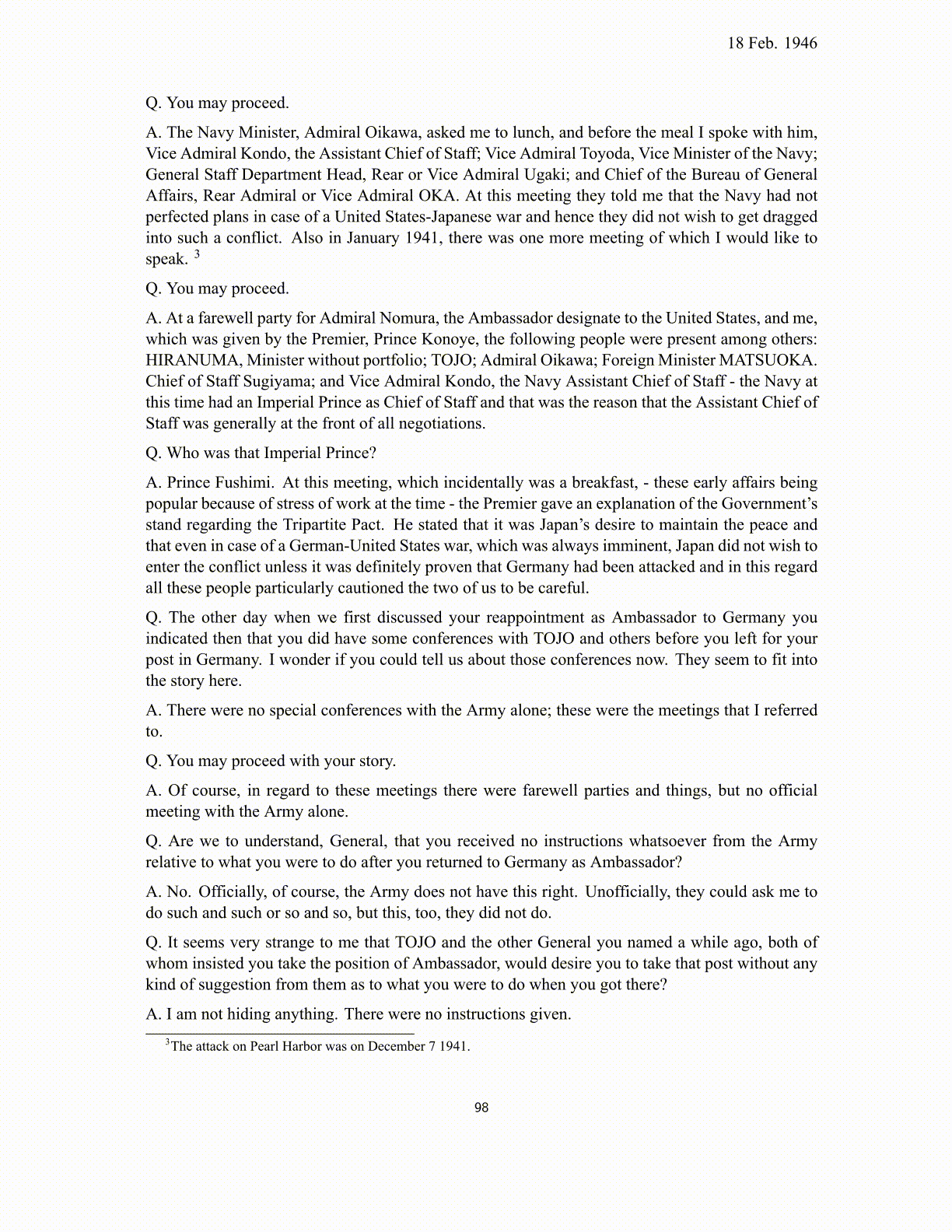
18 Feb. 1946 Q. You may proceed. A. The Navy Minister, Admiral Oikawa, asked me to lunch, and before the meal I spoke with him, Vice Admiral Kondo, the Assistant Chief of Staff; Vice Admiral Toyoda, Vice Minister of the Navy; General Staff Department Head, Rear or Vice Admiral Ugaki; and Chief of the Bureau of General Affairs, Rear Admiral or Vice Admiral OKA. At this meeting they told me that the Navy had not perfected plans in case of a United States-Japanese war and hence they did not wish to get dragged into such a conflict. Also in January 1941, there was one more meeting of which I would like to speak. 3 Q. You may proceed. A. At a farewell party for Admiral Nomura, the Ambassador designate to the United States, and me, which was given by the Premier, Prince Konoye, the following people were present among others: HIRANUMA, Minister without portfolio; TOJO; Admiral Oikawa; Foreign Minister MATSUOKA. Chief of Staff Sugiyama; and Vice Admiral Kondo, the Navy Assistant Chief of Staff - the Navy at this time had an Imperial Prince as Chief of Staff and that was the reason that the Assistant Chief of Staff was generally at the front of all negotiations. Q. Who was that Imperial Prince? A. Prince Fushimi. At this meeting, which incidentally was a breakfast, - these early affairs being popular because of stress of work at the time - the Premier gave an explanation of the Government’s stand regarding the Tripartite Pact. He stated that it was Japan’s desire to maintain the peace and that even in case of a German-United States war, which was always imminent, Japan did not wish to enter the conflict unless it was definitely proven that Germany had been attacked and in this regard all these people particularly cautioned the two of us to be careful. Q. The other day when we first discussed your reappointment as Ambassador to Germany you indicated then that you did have some conferences with TOJO and others before you left for your post in Germany. I wonder if you could tell us about those conferences now. They seem to fit into the story here. A. There were no special conferences with the Army alone; these were the meetings that I referred to. Q. You may proceed with your story. A. Of course, in regard to these meetings there were farewell parties and things, but no official meeting with the Army alone. Q. Are we to understand, General, that you received no instructions whatsoever from the Army relative to what you were to do after you returned to Germany as Ambassador? A. No. Officially, of course, the Army does not have this right. Unofficially, they could ask me to do such and such or so and so, but this, too, they did not do. Q. It seems very strange to me that TOJO and the other General you named a while ago, both of whom insisted you take the position of Ambassador, would desire you to take that post without any kind of suggestion from them as to what you were to do when you got there? A. I am not hiding anything. There were no instructions given. 3 The attack on Pearl Harbor was on December 7 1941. 98